Summer is in full swing and that is the time when many people travel and rediscover life in smaller Bulgarian towns and villages. Gatherings dedicated to traditions, customs, local dishes or simply family gatherings attract guests from the country and abroad.
But in order to immerse yourself in the daily life of the local residents, you need to talk to them and get to know their way of life. People are rarely in a hurry and they enjoy conversations. When it comes to the tourists, the locals are more than happy to guide them to a good restaurant or attractive nearby places.

The inhabitants of the mountain town of Panagyurishte are just like that - very friendly and hospitable. The town is located about 140 km away from Sofia and its history is linked with the brave heroes of the April Uprising (1876), who gave their lives for the Freedom of Bulgaria. Most local monuments and landmarks are dedicated to them and the area is visited by tourists all year round.
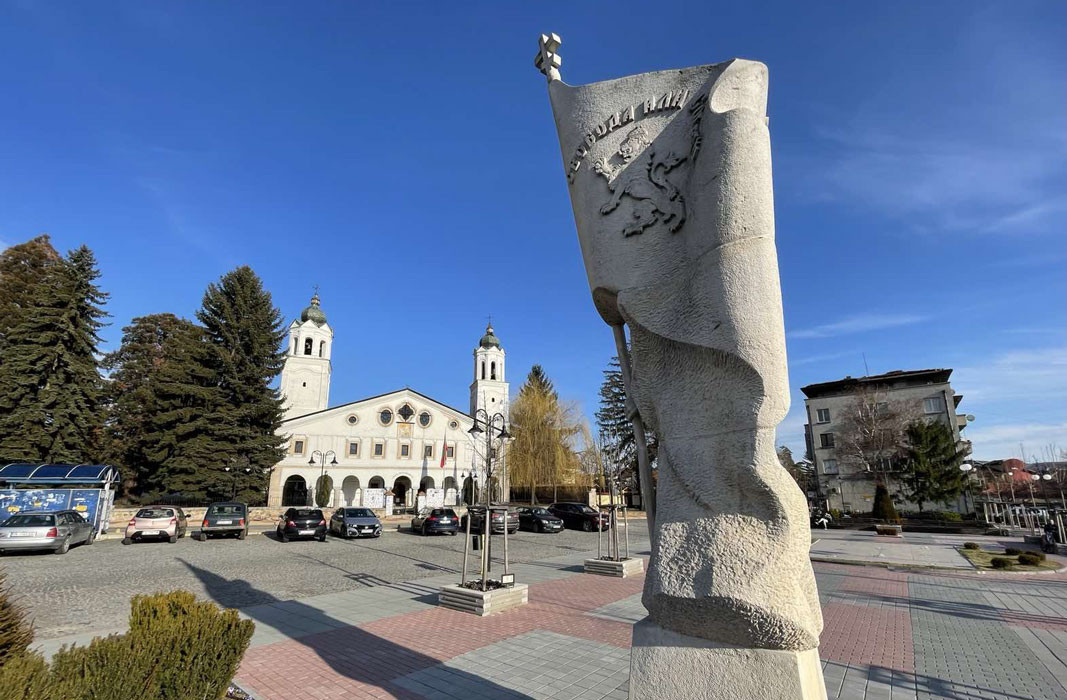
"For the first time this year our town hosted an international fireworks festival and many people from the country and abroad came. There was huge interest,” Teodora Hristova from Panagyurishte says. She is a teacher by profession and in her spare time she works at a local information center:
"There is friendliness between people in the small town; they often gather with neighbors and friends and help each other. Anyone who wants to work can find a job in a town like Panagyurishte with many working enterprises and developed tourism. This is a place where one cannot get bored. You can visit the nearby village of Banya, or the town of Strelcha and their warm mineral springs. If you like hiking in the mountains, you should definitely go to the peak of Bratiya - 1516 m. From there one can see both Sofia and Plovdiv. The Buntovna mountain hut, which I often visit, is also nearby."
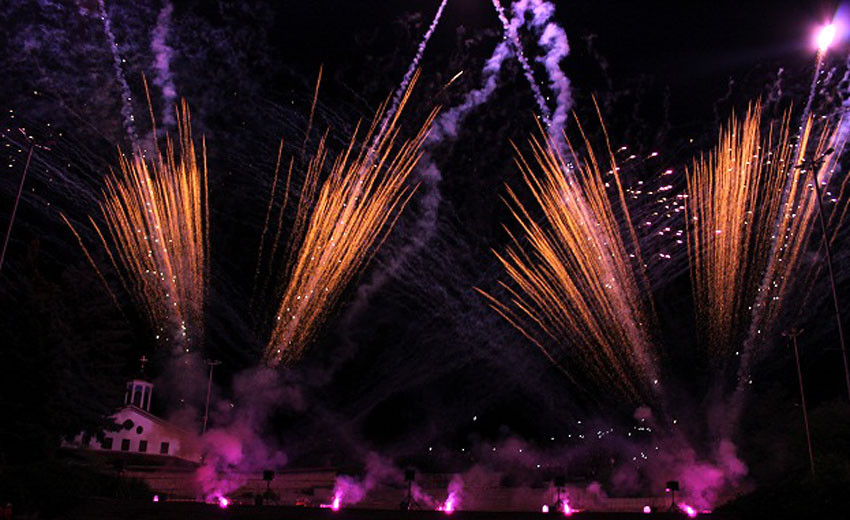
This summer, the National Folk Art Festival in Koprivshtitsa provided an occasion for people from various places to meet in the town. Local residents were waiting for the holiday with excitement and traders of traditional souvenir do not hide that such events encourage tourists to buy their goods.
Plamen Petrov came from Veliko Tarnovo to offer souvenirs, flags and t-shirts with Bulgarian symbols:
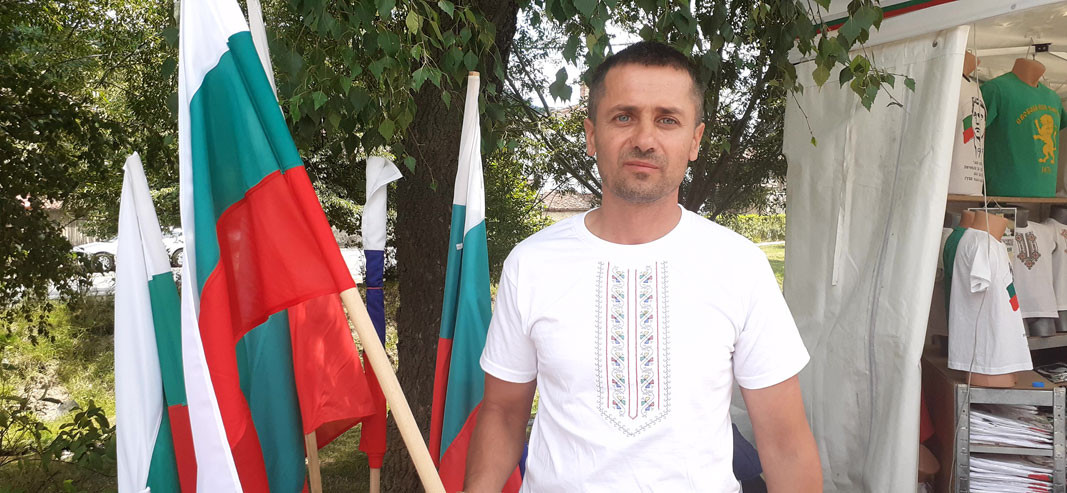
"This is my first time coming here to Koprivshtitsa. I like the setting and the people who come. You can feel a strong Bulgarian spirit and festive mood. It is good that there are now more organized tourist trips to such festivals. It was the same during the Cherry Festival in Kyustendil. There is interest in souvenirs. The prices have gone up but people are looking for them and buying them, especially during national holidays.”
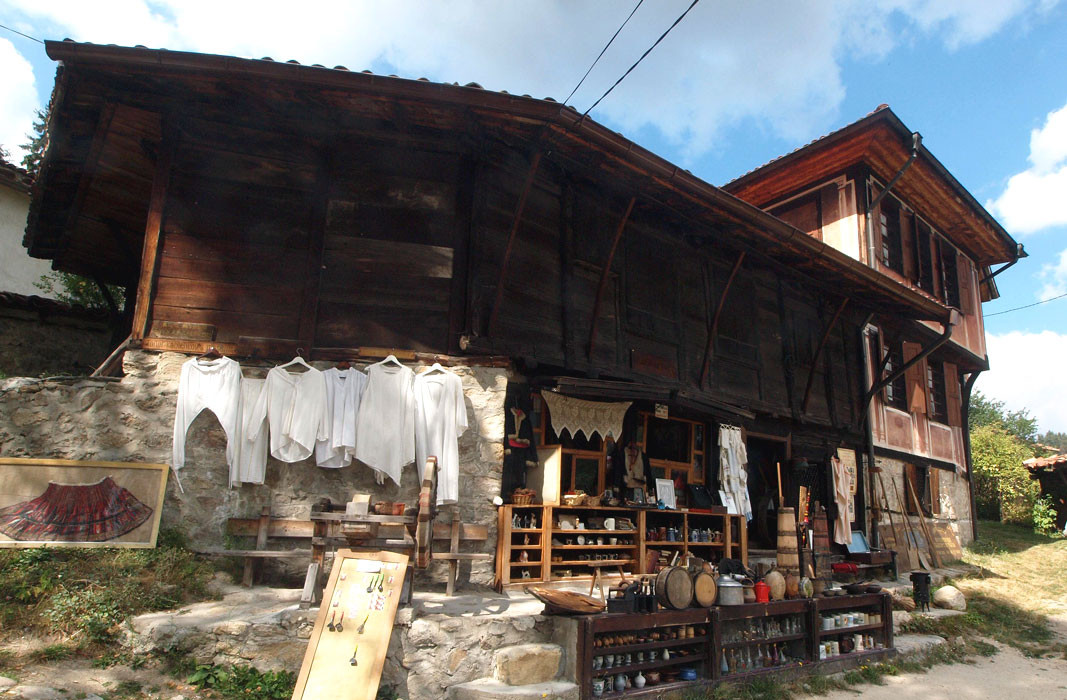 Stavri Stavrev came to the festival in Koprivshtitsa from the village of Kaloyanovo near Plovdiv. He sells authentic folk costumes. He says that he has great love for Bulgarian folklore and traditions and he even plays the accordion and sings folk songs that he learned as a child. Both of his sons work abroad:
Stavri Stavrev came to the festival in Koprivshtitsa from the village of Kaloyanovo near Plovdiv. He sells authentic folk costumes. He says that he has great love for Bulgarian folklore and traditions and he even plays the accordion and sings folk songs that he learned as a child. Both of his sons work abroad:
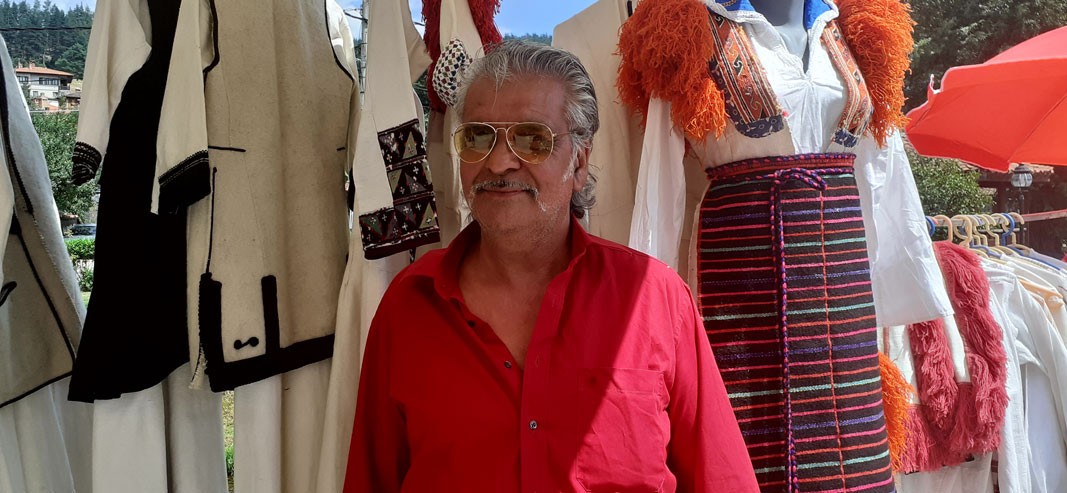
"I go around villages and towns and look to buy folk costumes through advertisements. Everything is handmade, they sewed them at night under candlelight. This is a national treasure that I have been collecting for over 20 years. But you have to love the folk costumes in order to do this. I have costumes from the Smolyan region, from Gabrovo, Pleven, from all over Bulgaria. After Koprivshtitsa, we would go to the festival in Zheravna. Everyone goes there because of the folk costumes."
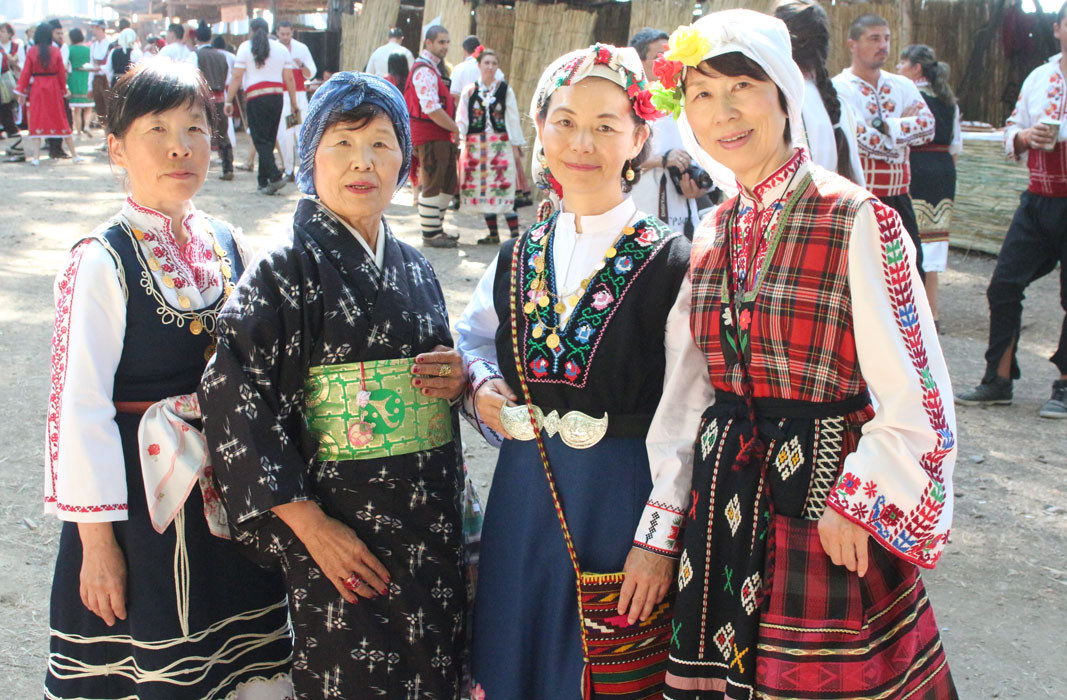
Photo: Veneta Nikolova, Gergana Mancheva, panagyurishte.org, BGNES -library
English: Al. Markov
The Bulgarian minority in Romania marked a significant event with the official opening of the Bulgarian Inn in the village of Izvoarele (Hanul Bilgarilor), Teleorman County (Southern Romania)- a locality with Bulgarian roots dating back over 200 years...
The 14th edition of DiVino.Taste, Bulgaria’s leading forum for wines and winemakers, will take place from 28 to 30 November at the Inter Expo Centre in Sofia. Over 80 producers from all wine regions will participate, offering tastings of around 600 of the..
Minutes before the second and final reading, at the parliamentary budget and finance committee, of the state budget for 2026, the leader of the biggest party represented in parliament GERB Boyko Borissov halted the procedure and sent the draft bill..
The Bulgarian minority in Romania marked a significant event with the official opening of the Bulgarian Inn in the village of Izvoarele (Hanul..

+359 2 9336 661
